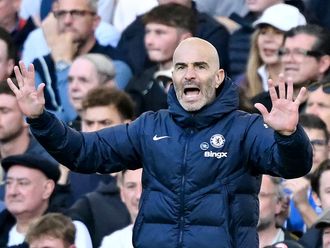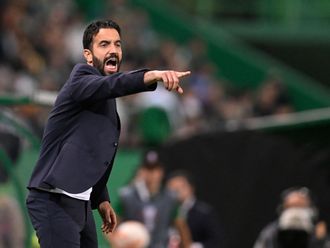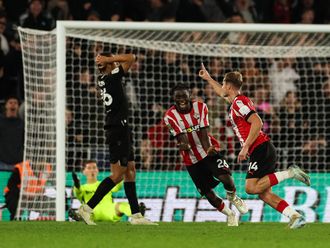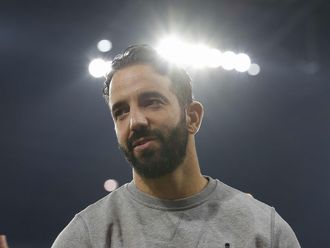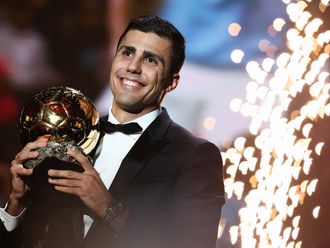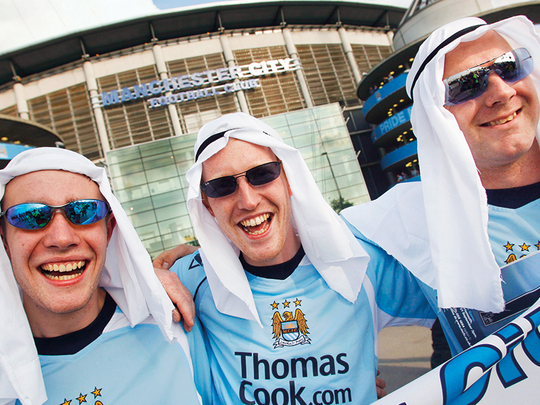
Dubai: The words ‘foreign investors’ used to strike fear into English football fans and on the law of averages, they probably still do. After all there’s been far more examples of international backers coming in to mismanage a club than there has otherwise; but 10 years this week since Manchester City’s acquisition by it’s Abu Dhabi owners, and world football now has the perfect example of how an investor can and should come into a club to make it better.
From idling mid-table and without a major honour in over 30 years, Arab investment has revolutionised Manchester City, and jettisoned it into the 21st century, where it is now well-placed to dominate for the next decade or more.
Unlike Chelsea’s 2003 takeover by Russian oligarch Roman Abramovich, which is probably the closest comparison to a foreign-led transformation of a club, City’s owners have been a lot more pragmatic.
Abramovich has gone through 15 managers in as many years, whereas City have had just five in a decade, the latest of which Pep Guardiola, was identified early on as the ultimate successor to the City hot seat.
With that in mind, the Abu Dhabi owners went about preparing the foundations by appointing all of the same backroom staff that the Spaniard had previously worked alongside while coach of Barcelona, from director of football Txiki Begiristain to chief executive officer Ferran Soriano.
This was said to be crucial in not only persuading Guardiola to eventually join from Bayern Munich in 2016, but also in enabling him to hit the ground running when he did start.
In the meantime, City were still winning trophies and appeasing fans with rapid progress, picking up a Premier League title each under Roberto Mancini (their first in 44 years) in 2011/12 and Manuel Pellegrini in 2013/14, as well as an FA Cup, two League Cups and a Charity Shield.
Guardiola was tipped to fail when he started at City and it’s true that in his first season, 2016-17, he struggled to deploy his continental high defensive line tactics in an environment where players had a lot less time on the ball. They continually got caught on the backfoot and were made to look average in his first year when he finished without silverware, partly because he didn’t have a sweeper-keeper adept to his style of play.
Patience and sense paid off from the owners, however, when in his second campaign, last season, he solved the problem and returned to win the Premier League and League Cup double. A slew of records tumbled, from most points (100), to biggest margin (19 points) and most wins (32), including the longest winning run (18 games) to name just a few.
He still hasn’t equalled Man City’s best ever Champions League finish of the semi-finals set by Mancini in 2015/16, but after reaching the Last 16 and quarters over the past two seasons, that will be the ultimate goal as he beds in the club with youth, not just experience.
It’s easy to say Chelsea have been the more successful side in English football over their 15 years under Abramovich, even despite his hire and fire policies. They’ve won five Premier Leagues, five FA Cups, three League Cups, the Champions League and a Europa League title under the Russian, but Chelsea aren’t set up for the next 10 years like City are.
With Sir Alex Ferguson’s 2013 retirement at Manchester United, a void opened up at the top of English football that City are far better placed to capitalise upon. Chelsea have lost ground with their rashness and lack of vision, despite having had a five-year advantage over City.
It’s this type of respectful and well-thought-out ownership, considering the fans’ feelings and their culture that not only paints Abu Dhabi in good light to the world, but also breaks down some deep-seated perceptions about foreign investors coming into England’s hallowed game.


